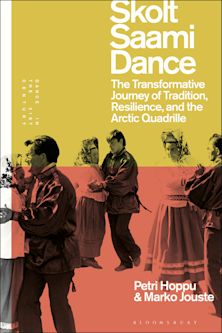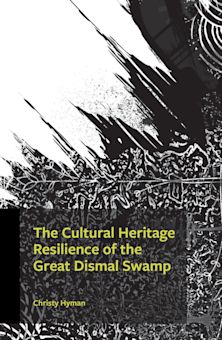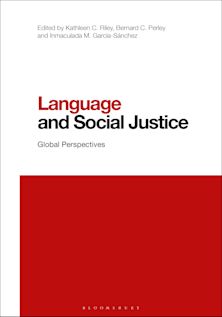- Home
- ACADEMIC
- Anthropology
- Cultural Anthropology
- Against the Grain
Against the Grain
The Vayda Tradition in Human Ecology and Ecological Anthropology
Bradley B. Walters (Anthology Editor) , Bonnie J. McCay (Anthology Editor) , Paige West (Anthology Editor) , Susan Lees (Anthology Editor) , David J. Bart (Contributor) , Carol J. Pierce Colfer (Contributor) , Michael Dove (Contributor) , Catherine Driscoll (Contributor) , Cristina Eghenter (Contributor) , Gunnar Haaland (Contributor) , Lawrence A. Kuznar (Contributor) , Kenneth J. Long (Contributor) , Keely Maxwell (Contributor) , Thomas R. McGuire (Contributor) , A Endre Nyerges (Contributor) , Christine Padoch (Contributor) , Jonathan Padwe (Contributor) , PadmapaniL Perez (Contributor) , Gerard A. Persoon (Contributor) , Miguel Pinedo-Vasquez (Contributor) , Anne Rademacher (Contributor) , Andrew Roberts (Contributor) , Paul Roscoe (Contributor) , Richard Scaglion (Contributor) , Indah Setyawati (Contributor) , Stephen Stich (Contributor) , Andrew P. Vayda (Contributor) , Patricia Vondal (Contributor)
- Textbook
Against the Grain
The Vayda Tradition in Human Ecology and Ecological Anthropology
Bradley B. Walters (Anthology Editor) , Bonnie J. McCay (Anthology Editor) , Paige West (Anthology Editor) , Susan Lees (Anthology Editor) , David J. Bart (Contributor) , Carol J. Pierce Colfer (Contributor) , Michael Dove (Contributor) , Catherine Driscoll (Contributor) , Cristina Eghenter (Contributor) , Gunnar Haaland (Contributor) , Lawrence A. Kuznar (Contributor) , Kenneth J. Long (Contributor) , Keely Maxwell (Contributor) , Thomas R. McGuire (Contributor) , A Endre Nyerges (Contributor) , Christine Padoch (Contributor) , Jonathan Padwe (Contributor) , PadmapaniL Perez (Contributor) , Gerard A. Persoon (Contributor) , Miguel Pinedo-Vasquez (Contributor) , Anne Rademacher (Contributor) , Andrew Roberts (Contributor) , Paul Roscoe (Contributor) , Richard Scaglion (Contributor) , Indah Setyawati (Contributor) , Stephen Stich (Contributor) , Andrew P. Vayda (Contributor) , Patricia Vondal (Contributor)
- Textbook
This product is usually dispatched within 2-4 weeks
- Delivery and returns info
-
Flat rate of $10.00 for shipping anywhere in Australia
You must sign in to add this item to your wishlist. Please sign in or create an account
Description
To rise to the increasingly urgent challenge of understanding the relationship between human beings and the environment, scholars need to step back and re-evaluate their basic premises about how current explanations should shape the form and content of their research. Against the Grain addresses a variety of topics in the field of human ecology, including ecological anthropology, evolutionary psychology, environmental history, and geography, and challenges scholars to re-think the adequacy of their methods and assumptions. Andrew P. Vayda concludes the volume with a critical commentary on these issues and, more widely, on the subject of explanation. The result is an extremely useful and provocative précis for thinking about, re-evaluating, and rectifying scholarly research.
Table of Contents
Part 2 Part I. Introductory Essays
Chapter 3 Chapter 1. An Intellectual History of Ecological Anthropology
Chapter 4 Chapter 2. Maori Warfare: Prefiguring Contemporary Directions in Ecological Science
Part 5 Part II. Events Causes and Explanations
Chapter 6 Chapter 3. Explaining Causes in Evolving Contexts: From Nepali Hill Farmers to Business Managers in Thailand
Chapter 7 Chapter 4. Events, Politics, and Environmental Change
Chapter 8 Chapter 5. Orthodoxy and Revision in West African Guinea Savanna Ecology
Chapter 9 Chapter 6. Looking for Cause with All the Small Changes: Using Event Ecology to Find Human Causes of Biological Invasions
Chapter 10 Chapter 7. Shell Games on the Water Bottoms of Louisiana: Investigative Journalism and Anthropological Inquiry
Chapter 11 Chapter 8. Process in an Eventful Environment
Chapter 12 Chapter 9. A New Guinea Culture-Bound Syndrome Revisited: Humility and Monological Authority in Anthropology
Chapter 13 Chapter 10. Deductive-nomological vs. Causal-mechanistic Explanation: Relative Strengths and Weaknesses in Anthropological Explanation
Chapter 14 Chapter 11. Vayda Blues: Explanation in Darwinian Ecological Anthropology
Part 15 Part III. Research on Environment and Development
Chapter 16 Chapter 12. What Kind of Anthropology for Successful Conservation Management and Development?
Chapter 17 Chapter 13. Environmental Conservation and Social Life in Papua New Guinea
Chapter 18 Chapter 14. The Concept of Human Agency in Contemporary Conservation and Development Discourse
Chapter 19 Chapter 15. Using Progressive Contextualization to Understand a Rural Development Success Story in Indonesian Borneo
Chapter 20 Chapter 16. From Understanding to Action: Building on Anthropological Approaches to Influence Policymaking
Chapter 21 Chapter 17. The Relevant Context: Environmental Consequences of Images of the Future
Chapter 22 Chapter 18. Indigenous Knowledge and In Situ Crop Germplasm Conservation
Part 23 Part IV. Concluding Essay
Chapter 24 Chapter 19. Causal Explanation as a Research Goal: A Pragmatic View
Product details
| Published | 16 Dec 2008 |
|---|---|
| Format | Paperback |
| Edition | 1st |
| Extent | 392 |
| ISBN | 9780759111738 |
| Imprint | AltaMira Press |
| Dimensions | 230 x 154 mm |
| Publisher | Bloomsbury Publishing |
About the contributors
Reviews
-
Against the Grain provides an admirable survey of Vayda's career, shows some interesting extensions and applications of his ideas, and provides an elaborated critique of contrasting views in human ecology and ecological anthropology. I recommend this book to all who explore human environment relationships and those economic botanists who wish to explore why questions in their study of plant use.
Economic Botany
-
This is an excellent volume. Its strength lies in providing an intellectual history of an eminent anthropologist and a partial understanding of his influence on scholars and on anthropological theory, methodology, and practice over a considerable number of years.
Current Anthropology
-
. . . An excellent volume . . . Its strength lies in providing an intellectual history of an eminent anthropologist and a partial understanding of his influence on scholars and on anthropological theory, methodology, and practice over a considerable number of years.
Current Anthropology
-
The volume is a resource that is likely to be referenced frequently by researchers and individual chapters will provide excellent reading material for courses in ecological anthropology.
Human Ecology
-
In a world of enormous socio-environmental complexity, perhaps the most laudable intellectual position is one of rigorous humility. The works in this volume are compelling tributes to such an approach, providing sober, meticulous, and powerful explanations, all of which urge against over-simple generalization and a priori assumptions, which too often blur our understanding of the environmental changes around us. The Vayda tradition is alive and well, and we would all do well to heed its lessons.
Paul Robbins, University of Wisconsin–Madison
-
Against the Grain provides an admirable survey of Vayda's career, shows some interesting extensions and applications of his ideas, and provides an elaborated critique of contrasting views in human ecology and ecological anthropology. I recommend this book to all who explore human environment relationships and those economic botanists who wish to explore "why" questions in their study of plant use.
Economic Botany


































